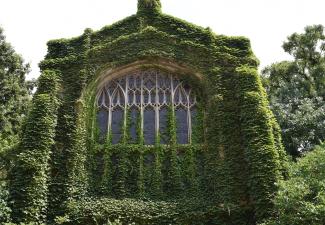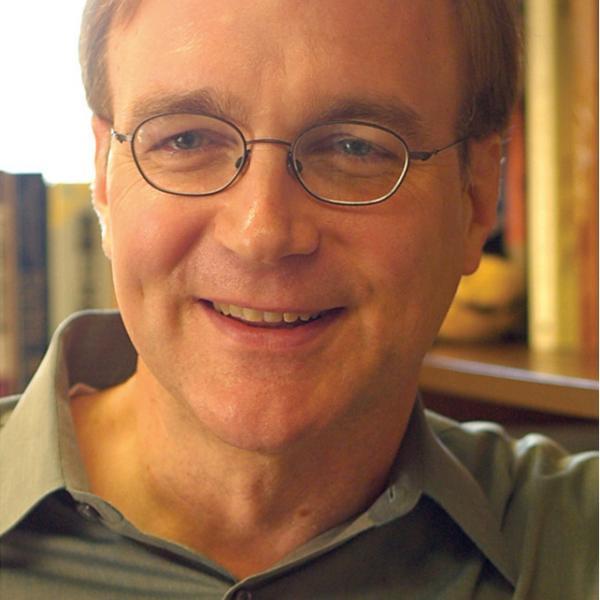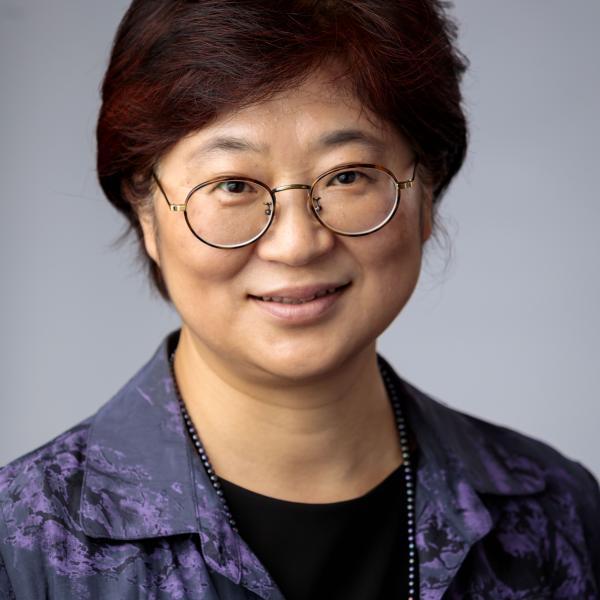
In 2016, the Department of East Asian Languages and Civilizations (EALC) celebrated its fiftieth year as a formally established department. Today, the specializations of EALC faculty cover a wide range of cultures, topics, and historical periods, facilitating the Department’s encouragement of interdisciplinary and inter-regional projects. The Department’s language program offers Chinese, Japanese, and Korean, as well as classical Chinese, and kindai bungo. Studies in EALC are also further supported and expanded by the University of Chicago's Center for East Asian Studies, where students can engage with a wide variety of events relative to the department. MAPH students can take the entirety of their classes in EALC or explore offerings in other subjects, such as Art History, Cinema and Media Studies, Comparative Literature, Comparative Race and Ethnic Studies, Gender and Sexuality, and Theater and Performance Studies.
Selected Faculty
Sample Courses
Esoteric Buddhism in East Asia (EALC 33900) Spring 2025
The tantric or esoteric traditions exerted a profound if often covert influence on the development of East Asian Buddhism as a whole and on Japanese Buddhism in specific. In this course, we will trace their development through a close reading of selected sources in translation, focusing on the Ben kenmitsu nikyô ron attributed to Kūkai (774–835), the first systematizer of esoteric Buddhist thought in Japan. We will pay especially close attention to how the label of the “esoteric” or “tantric” is used to define specific religious identities. Students wishing to take this class should have a grounding in (East Asian) Buddhist thought. (Stephan Licha)
Generations, Gender, and Genre in Korean Fiction & TV Drama
(EALC 23044) Autumn 2024
The seminar analyzes the issues of generations, gender, and genres that arise from a selection of popular literary and television dramas from modern and contemporary Korea. The selection for the course is marked by the creative contributions of Korean women as novelists, scriptwriters, directors, among others. It includes prose fiction by renowned authors such as Park Wan-sŏ (1931-2011), Han Kang (1970- ), and Cho Nam-joo (1978- ), as well as television series like Mr. Sunshine (2018; scripted by Kim Eun-sook), The Red Sleeve (2021; dir. by Chŏng Chi-in; adapted the 2017 novel by from Kang Mi-kang), and My Liberation Notes (2022; written by Park Hae-yeong). Through a blend of close textual analysis and historical contextualization, the course aims to uncover the ways in which the gendered and generational identities of these creators might have helped certain configurations of concerns, needs, and aspirations saliently emerge in response to social, cultural, historical, and political currents of their time. (Kyeong-Hee Choi)
History of Food In Japan (EALC 34123) Spring 2025
Although food is an essential part of human existence, it has only recently become the object of historical analysis, and historical research has drawn attention to its significance in relation to issues of health, gender, class, technology, and culture. This course explores the history of food in Japan in the period from c. 1600 to the postwar era. Topics to be examined include changing practices of consumption and production, medical discourse and conceptions of a proper diet, the impact of introduction of new foods and new methods of preparation, the rise of nutritional science, the development of a “national cuisine,” and the impact of war and defeat upon food culture. (Susan Burns)
Everyday Maoism: Revolution, Daily Life, and Material Culture in Socialist China
(EALC 34255) Winter 2025
The history of Maoist China is usually told as a sequence of political campaigns: land and marriage reform, nationalization of industry, anti-rightist campaign, Great Leap Forward, Cultural Revolution, etc. Yet for the majority of the Chinese population, socialism was as much about material changes as about politics: about the two-storey brick houses, electric lights and telephones (loushang louxia, diandeng dianhua) that the revolution had promised; about new work regimes and new consumption patterns – or, to the contrary, about the absence of such change. If we want to understand what socialism meant for different groups of people, we have to look at the "new objects" of socialist modernity, at changes in dresscodes and apartment layouts, at electrification and city planning. We have to analyze workplaces and labor processes in order to understand how socialism changed the way people worked. We also have to look at the rationing of consumer goods and its effects on people's daily lives. The course has a strong comparative dimension: we will look at the literature on socialism in the Soviet Union and Eastern Europe, to see how Chinese socialism differed from its cousins. Another aim is methodological. How can we understand the lives of people who wrote little and were rarely written about? To which extent can we read people's life experiences out of material objects? (Jacob Eyferth)
A complete listing of courses and descriptions is available at the EALC course page.
EALC Specialization
The East Asian Languages and Civilization Specialization allows students to structure their coursework and thesis around the study of East Asia within MAPH. Students who complete the following requirements will receive an East Asian Languages and Civilizations transcript notation:
- MAPH Core Course (Foundations of Interpretive Theory)
- Four graduate-level EALC courses (courses originating in or cross-listed with EALC)
- Advanced proficiency in at least one language of the region as determined by a placement examination offered by the Office of Language Assessment or by taking a seminar that makes substantial use of materials in an East Asian language
- An optional MA thesis or project in East Asian Languages and Civilizations under the supervision of an EALC-affiliated faculty member. If a student chooses not to do a thesis or project, they must take one additional EALC course (i.e. 5 total)
Please direct any questions you may have about specializing in EALC to maph-support@uchicago.edu.
Recent East Asian Languages and Civilizations Thesis Projects
“Pleasure in Pain: Sadomasochism and the Aestheticizing Gaze in Tanizaki Jun’ichiro’s “Shisei” and “Shonen”
Sherry Huang, MAPH TLO ‘25
Advisor: Michael K. Bourdaghs
“Disseminating Anti-American Propaganda Through Literature: North Korean Editions of Han Sǒrya’s 'Sǔngnyangi' ('Mad Dogs')”
Kassidy Menk, MAPH TLO ‘25
Advisor: Kyeong-hee Choi
"Dreams of Women, Not Dreams of Men: A Close Reading of Female Characters in Mo Du"
Silin Chen, MAPH '21
Advisor: Melissa Van Wyk
"The Rise of Chinese Hip-Hop and Its Parodoxical Quest for Authenticity"
Mingsi Ma, MAPH '21
Advisor: Michael K. Bourdaghs
"“Weaker than Women”: Liang Qichao’s Gender Metaphor and the Birth of Chinese Nationalism in the Early Twentieth Century"
Yizeng Wei, MAPH '21
Advisor: Jacob Eyferth



